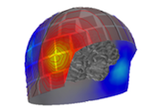mne.io.read_raw_egi¶
- mne.io.read_raw_egi(input_fname, eog=None, misc=None, include=None, exclude=None, preload=False, channel_naming='E%d', verbose=None)[source]¶
Read EGI simple binary as raw object.
Note
This function attempts to create a synthetic trigger channel. See the Notes section below.
- Parameters
- input_fnamepath-like
Path to the raw file. Files with an extension .mff are automatically considered to be EGI’s native MFF format files.
- eog
listortuple Names of channels or list of indices that should be designated EOG channels. Default is None.
- misc
listortuple Names of channels or list of indices that should be designated MISC channels. Default is None.
- include
None|list The event channels to be ignored when creating the synthetic trigger. Defaults to None. Note. Overrides
excludeparameter.- exclude
None|list The event channels to be ignored when creating the synthetic trigger. Defaults to None. If None, channels that have more than one event and the
syncandTREVchannels will be ignored.- preloadbool or
str(defaultFalse) Preload data into memory for data manipulation and faster indexing. If True, the data will be preloaded into memory (fast, requires large amount of memory). If preload is a string, preload is the file name of a memory-mapped file which is used to store the data on the hard drive (slower, requires less memory).
New in version 0.11.
- channel_naming
str Channel naming convention for the data channels. Defaults to ‘E%d’ (resulting in channel names ‘E1’, ‘E2’, ‘E3’…). The effective default prior to 0.14.0 was ‘EEG %03d’.
New in version 0.14.0.
- verbosebool,
str,int, orNone If not None, override default verbose level (see
mne.verbose()and Logging documentation for more). If used, it should be passed as a keyword-argument only.
- Returns
- rawinstance of RawEGI
A Raw object containing EGI data.
See also
mne.io.RawDocumentation of attribute and methods.
Notes
The trigger channel names are based on the arbitrary user dependent event codes used. However this function will attempt to generate a synthetic trigger channel named
STI 014in accordance with the general Neuromag / MNE naming pattern.The event_id assignment equals
np.arange(n_events) + 1. The resultingevent_idmapping is stored as attribute to the resulting raw object but will be ignored when saving to a fiff. Note. The trigger channel is artificially constructed based on timestamps received by the Netstation. As a consequence, triggers have only short durations.This step will fail if events are not mutually exclusive.
